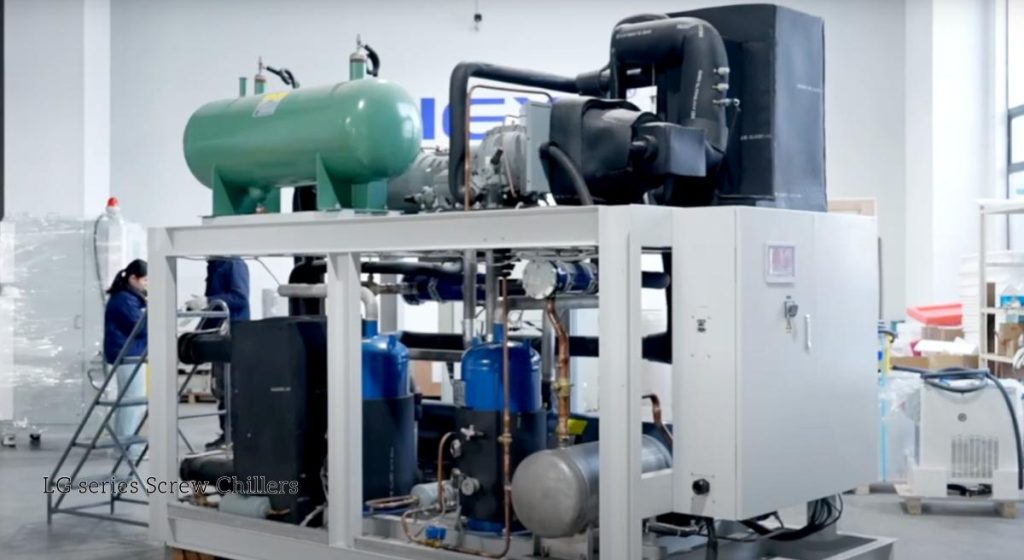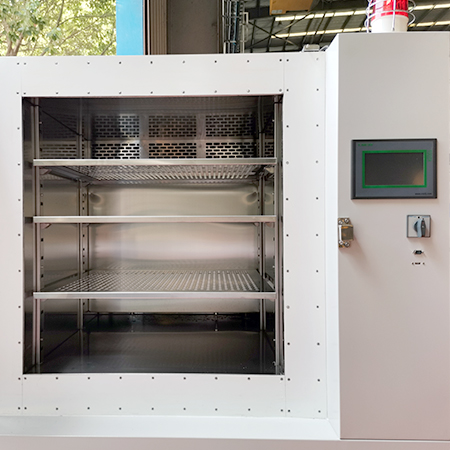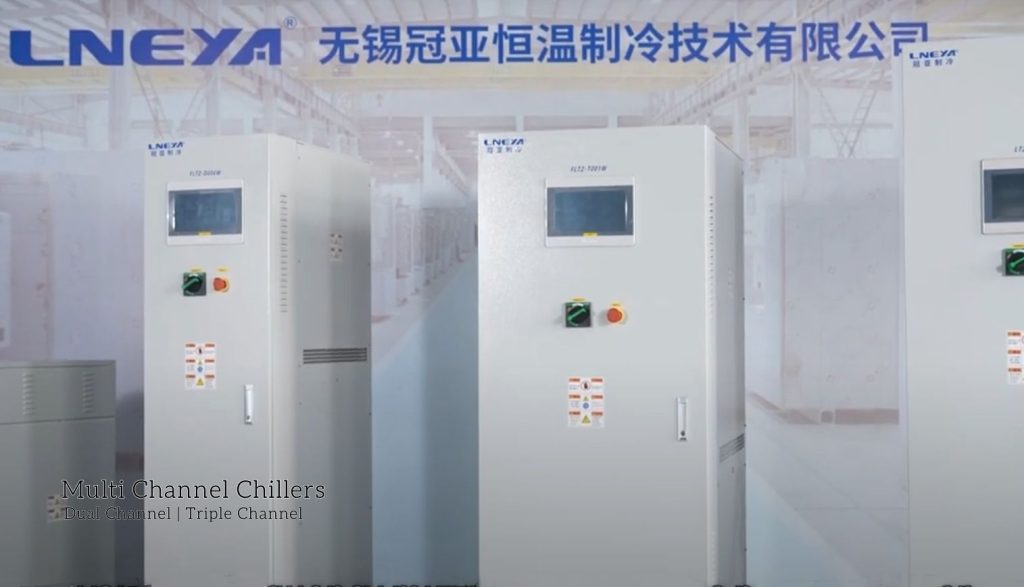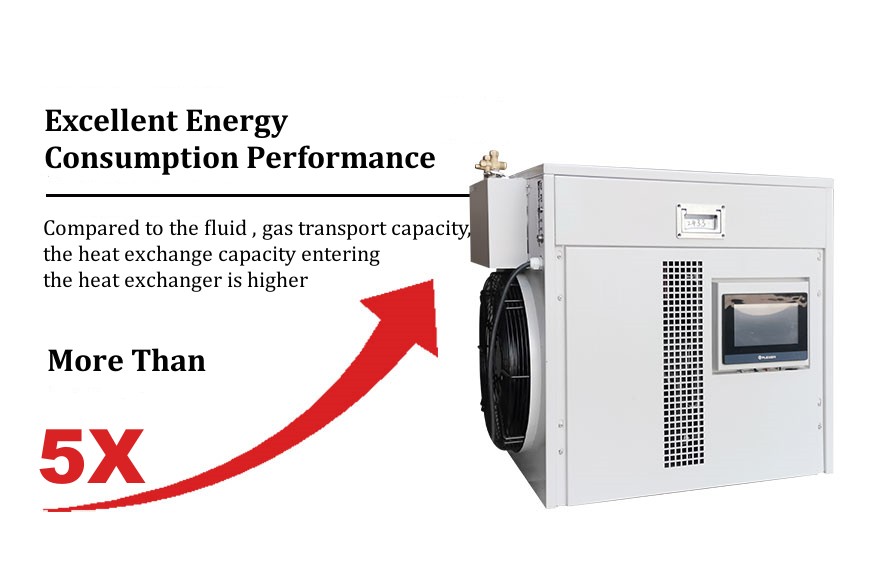Was ist ein Ölabscheider in Kältesystemen
Wenn Sie mit Kühlern oder großen gewerblichen Kühlsystemen gearbeitet haben, wissen Sie, dass Kompressoren nicht gerade billig sind. Ein kleines, oft übersehenes Bauteil erspart Ihnen leise viele Probleme: der Ölabscheider. Ignorieren Sie ihn, und Sie bemerken seltsame Dinge wie Kompressorgeräusche, merkwürdige Druckschwankungen und steigende Energiekosten.
Was ist ein Ölabscheider in Kältesystemen?
Einfach ausgedrückt sorgt ein Ölabscheider dafür, dass das Öl nicht dorthin gelangt, wo es nicht hingehört. Kompressoren fördern ein Gemisch aus Kältemitteldampf und Öl. Das Öl schmiert wichtige bewegliche Teile, aber wenn es in den Verdampfer oder Kondensator gelangt, verringert es den Wärmeaustausch und die Effizienz. Der Ölabscheider fängt das Öl auf und führt es zurück zum Kompressor, sodass das Kältemittel frei fließen kann.
Häufige Arten von Ölabscheidern
Die Wahl des richtigen Ölabscheiders hängt von der Systemgröße, dem Kältemitteltyp und den Betriebsbedingungen ab.
Zentrifugal
Zentrifugalabscheider wirbeln das Kältemittel-Öl-Gemisch, schleudern das Öl nach außen und führen es zurück zum Kompressor. Sie bewältigen hohe Durchflüsse leise und erfordern nur minimalen Wartungsaufwand. Am besten funktionieren sie in großen industriellen Kühlern, bei denen die Betriebszeit entscheidend ist.
Filterbasiert
Filter-style separators trap oil droplets on a medium. The droplets coalesce and return to the compressor naturally. They’re simple, reliable, and easy to retrofit.
Demister
Demister verwenden Netzmatten. Das Kältemittel passiert das Netz, winzige Öltropfen verbinden sich und fließen zurück zum Kompressor. Häufig in mittelgroßen Systemen eingesetzt, sind Demister kostengünstig und platzsparend. Sie sind nicht so robust wie Zentrifugalgeräte, aber für viele gewerbliche Anlagen bieten sie ein gutes Verhältnis von Kosten zu Leistung.
Wie funktioniert ein Ölabscheider?
Je nach Bauart begegnen Ihnen mechanische, koaleszierende oder Systeme mit kontinuierlicher Rückführung. Jede arbeitet anders, hat jedoch dasselbe Ziel: das Öl an den falschen Stellen fernzuhalten.
Mechanische Trennung
Mechanische Abscheider sind einfach. Das Kältemittel verlangsamt sich in einer Kammer, Öltropfen fallen durch die Schwerkraft aus, und der sauberere Dampf strömt weiter durch das System. Es ist nicht spektakulär, aber in großen industriellen Kühlern äußerst zuverlässig.
Koaleszierend
Koaleszierende Abscheider sind anspruchsvoller. Wenn das Kältemittel durch ein Netz oder eine Blende strömt, verschmelzen kleine Öltropfen zu größeren Tropfen, die zum Kompressor zurückfallen. Systeme mit koaleszierenden Abscheidern sind tendenziell empfindlicher und werden häufig dort eingesetzt, wo eine präzise Kontrolle des Ölgehalts erforderlich ist.
Kontinuierliche Rückführung
Hochleistungs-Kühler verwenden manchmal kontinuierliche Rückführungsabscheider. Sie pumpen das abgetrennte Öl aktiv zurück zum Kompressor, selbst bei schwankenden Lasten. Dies verhindert Ölmangel während Phasen mit geringer Last und hält die Kompressoren unter allen Betriebsbedingungen zufrieden.
Warum ist die Ölabscheidung wichtig?
Manche unterschätzen Ölabscheider, aber ihre Wirkung ist spürbar.
Effizienz
Öl in Wärmetauschern wirkt wie eine Isolierschicht. Das Kältemittel hat Schwierigkeiten, Wärme zu übertragen, die Kompressoren laufen länger und die Energiekosten steigen. Ein funktionierender Abscheider hält das Kältemittel effizient in Bewegung, was bedeutet, dass das System schneller die Sollwerte erreicht und weniger Strom verbraucht.
Kompressorschutz
Kompressoren sind teuer und empfindlich. Ölmangel ist genauso schlimm wie Ölüberschuss. Zu wenig Öl verschleißt die Lager; zu viel kann dazu führen, dass Ventile kleben oder überhitzen.
Reduzierter Wartungsaufwand
Öl an falschen Stellen führt zu ständigem Fehlerbeheben: Druckschwankungen, ungleichmäßige Kühlung, seltsame Geräusche. Eine ordnungsgemäße Ölabscheidung reduziert diese Probleme. In Anlagen, in denen Abscheider regelmäßig gewartet werden, verbringen Wartungsteams 20–30 % weniger Zeit mit kleineren Leistungsproblemen.
Schlussfolgerung
Die regelmäßige Inspektion und Reinigung Ihres Ölabscheiders bringt nur Vorteile. Wenn Sie noch Fragen haben oder einen zuverlässigen Chiller für ein neues Projekt anpassen möchten, hilft Ihnen LNEYA gerne.

- Temperature Control in Photolithography
- Is a Used Chiller a Good Idea
- Chiller Components and Refrigeration Fundamentals Guides
- Chiller Types and Selection Guides
- How Does a Peltier Cooler Work
- Peltier Chiller vs. Compressor Chiller
- What Is a Peltier Chiller
- OEM vs Aftermarket Chiller Spare Parts
- Dezember 2025
- November 2025
- Oktober 2025
- September 2025
- August 2025
- Juli 2025
- Juni 2025
- Mai 2025
- März 2025
- Februar 2025
- Januar 2025
- Dezember 2024
- November 2024
- Oktober 2024
- September 2024
- August 2024
- Juli 2024
- Juni 2024
- Mai 2024
- April 2024
- März 2024
- Februar 2024
- September 2023
- Juli 2023
- Juni 2023
- Mai 2023
- Januar 2023
luftgekühlte Kältemaschine Kühler Installation der Kältemaschine Wartung von Kühlanlagen chiller refrigerant Kältemaschinen Kalte Montage Gefrierschrank Kaltwassersatz Kühl-Heizsystem cooling system dynamisches Temperaturkontrollsystem energieeffizienter Chiller explosionsgeschützter Kühler Gefrierschrank Heizungsumwälzpumpe Industriekühler Industriekälteanlagen Industriekühlung industrieller Gefrierschrank Industriekühlschrank Mantelreaktor Laborkühlschrank Niedertemperaturkühler Nachrichten Ölkühler Prozesskühler process cooling Reaktorkühler Reaktorkühlung Reaktorkühlung Heizung Reaktorheizung Kühlung Kältethermostat Schneckenkühler Halbleiter-Kühlgerät Halbleiter-Testkühler sundi tcu Temperaturkontrolle Prüfkammer Thermostat Ultra-Niedertemperatur-Kühler Fahrzeug-Test-Kühler Kaltwassersatz wassergekühlte Kältemaschine
Verwandte Chiller
KONTAKT US
TEL:
EMAIL:
WeChat & WhatsApp:

Wechat QR

Haben Sie eine Frage oder benötigen Sie ein Angebot? Füllen Sie das untenstehende Formular aus, und unser Team wird sich innerhalb von 24 Stunden bei Ihnen melden.
 LNEYA Industriekühler Hersteller Lieferant
LNEYA Industriekühler Hersteller Lieferant
















